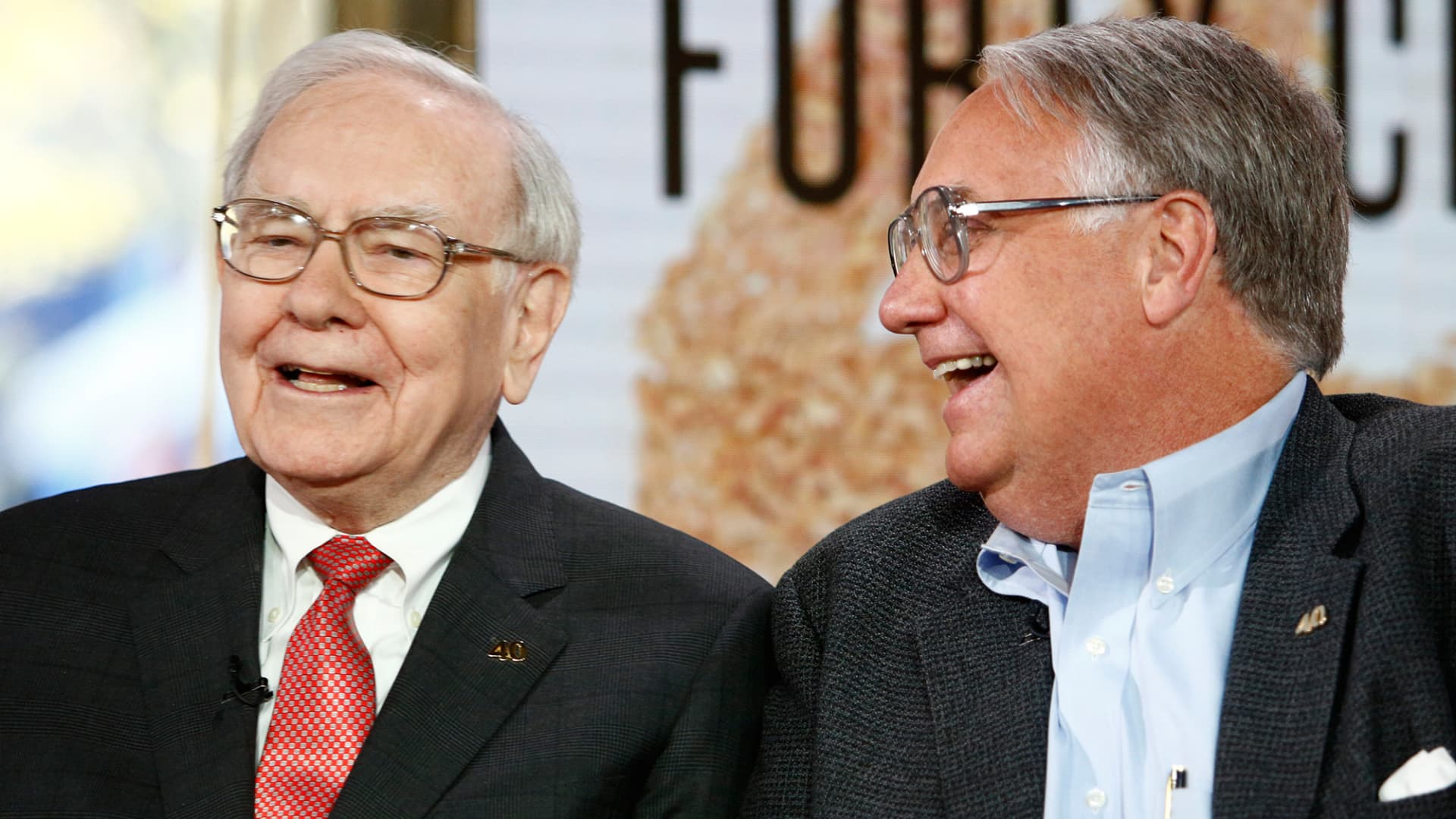Warren Buffett has made it known for decades that issuing dividends is out of the question for Berkshire Hathaway , but there’s a chance it could be put back on the table when he’s no longer at the helm. The Omaha-based conglomerate hasn’t paid a dividend since 1967, two years after Buffett took control of the failing clothing maker. He later called that payment a one-off, “terrible mistake.” The 94-year-old investment legend and his shareholders have always been confident that there are other, more profitable ways to deploy capital than by cutting quarterly checks to shareholders. Buffett has long said he would prefer stock buybacks to dividends as a way to return capital to shareholders, as scheduled cash payments have the implicit promise that they won’t ever be reduced, let alone halted. “Dividends have the implied promise that you keep paying them forever and not decrease them,” whereas repurchasing Berkshire’s own stock is often even more beneficial for shareholders, Buffett said in a 2018 interview with CNBC. Of the two, “we would probably lean toward repurchase,” he said. Buffett has also ruled out the possibility of a special, one-time dividend. ‘A trick question’ For a long time, shareholders assumed Berkshire would keep the policy on dividends when Buffett steps down or dies, leading to an eventual succession. But in a recent interview with the Wall Street Journal , Warren Buffett’s middle child Howard, who will eventually become Berkshire’s nonexecutive chairman, hesitated when asked about Berkshire’s future dividend policy. The younger Buffett was described as laughing and then replying, “That’s a trick question…There’s no way that I can answer that question because I don’t know.” Perhaps the elder Buffett has softened his opinion on dividends as Berkshire’s cash pile continued to smash records. At $325 billion, Berkshire’s cash hoard now accounts for about 30% of the conglomerate’s total assets, the highest percentage since 1990. Berkshire hasn’t done many deals in recent years. The last big acquisition Berkshire made was buying insurance company Alleghany for $11.6 billion in 2022. Before that, it was 2016 when the conglomerate bought industrial company Precision Castparts for $37 billion, including debt. Buffett has been parking his cash in Treasury bills and notes over the past few years, earning sizable returns. At the same time, he’s shown frustration with how pricey the stock market has become, making attractive targets far and few in between. “I think they expect us to do whatever we think makes sense for all shareholders,” Buffett said in 2023’s annual meeting. “And obviously, if we really thought we never could use the money effectively in the business, we should get it out, one way or another.” Think differently The CEO has admitted he’s changed his mind about his succession plan, noting that his decision is now influenced by how much Berkshire’s assets have grown. Buffett told shareholders last year that his designated successor Greg Abel will have the final say on Berkshire’s investment decisions, be it buying businesses or stocks. Many viewed that as a twist in his succession plan. “I used to think differently about how that would be handled, but I think that responsibility should be that of the CEO and whatever that CEO decides may be helpful,” Buffett said last year. “The sums have grown so large at Berkshire, and we do not want to try and have 200 people around that are managing a billion each. It just doesn’t work.”





